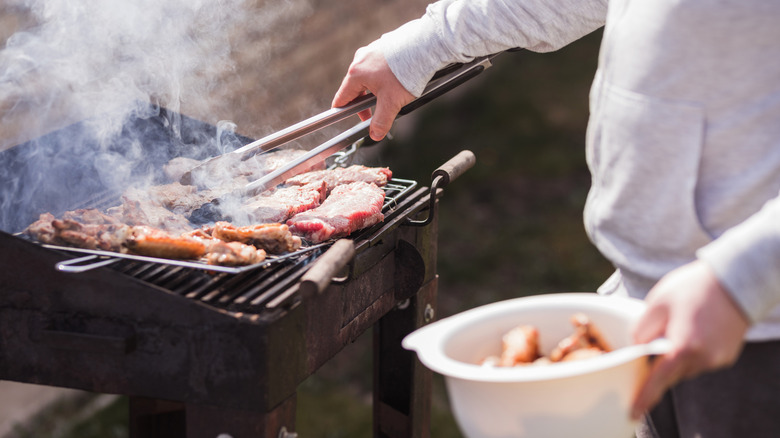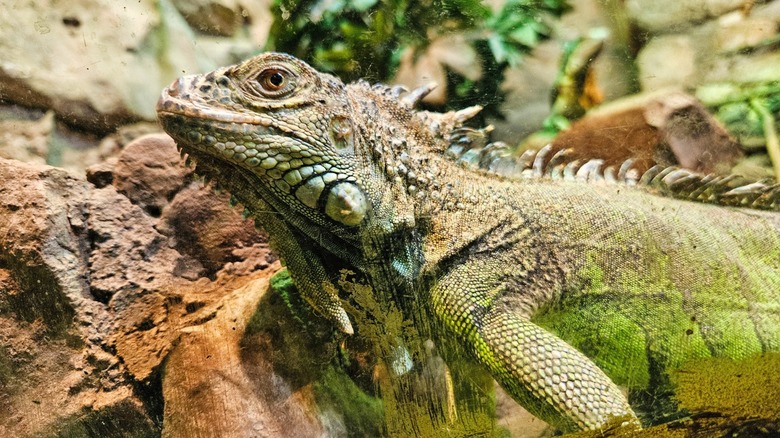The Diverse, Old-School Meats That Were Barbecued Before Beef And Pork
On our list of expert tips for better barbecue, we discuss direct heat and cooking succulent vegetables. Building on that theme, we covered the store-bought barbecue sauces that are celebrity chef favorites. What Foodie has never explored, however, is the correct way to barbecue an iguana. (Did you just hear the sound of a record scratch?)
Long before barbecue became a beloved American tradition associated with summer holidays and TV cooking competitions, it was a New World invention that blew European colonizers' minds when they witnessed it in action. We can trace barbecue back to the Taino people of the Caribbean, who dug firepits and covered them in grates of green wood, then cooked over them in a process that they called "barabicu." Note that the Taino were an Arawak tribe that, over thousands of years, had migrated all over South America, meaning that these novel cooking traditions were popping up in many places at once. Barbecue doesn't belong exclusively to the Taino, but their cooking is one of contemporary American barbecue's closest ancestors.
Of course, our love of barbecue beef, pork, and chicken is new as well. Back in the day, the earliest barbecue pitmasters would flame-cook many animals that were available and tasted good, including alligator, iguana, snakes, and large rodents. Spanish colonizers brought the cooking style back to the continent, where "barbacoa" took root and developed its own traditions. When colonizers imported domestic hens and pigs to the New World, chicken and pork became popular canvases for barbecue.
Does nontraditional barbecue still get play today?
Compilations of grilling hacks may not spell it out for you, but you need not stick to pork, chicken, beef, and turkey for barbecue if you are an adventurous eater. If you don't want to go as far as smothering an iguana in sweet 'n smoky sauce, we totally get it — even though you are allowed to hunt iguanas in Florida, as they are an invasive species. Venison and elk, for instance, are game meats that many foodies find approachable and might consider grilling or smoking. Keep in mind that both these meats are quite lean and may require the addition of extra fat, like wrapping in streaky bacon, to get them fork-tender.
Those that source their own meat have lots of other options for barbecue. Alligator is still popular in the South, while rabbit, squirrel, goose, duck, and pheasant bagged on hunts will all offer their own challenges and rewards when cooked over fire. If you can track down wild boar or turkey, you'll enjoy a gamier take on traditional barbecue fare. All manner of seafood can be flame-cooked to tremendous effect, obviously. But watch that smoker if you live in the Garden State: laws against barbecuing certain meats are on the books in New Jersey, with bald eagles, ospreys, and sea turtles among those enjoying (understandably!) protected status. Of course, if you are a more timid barbecue enthusiast and prefer the familiarity of packaged meat that you can easily find at the grocer, that's okay as well. With the long, delicious legacy of barbecue, there's no end to the ways you can jazz up meat, no matter how mundane the cut.

